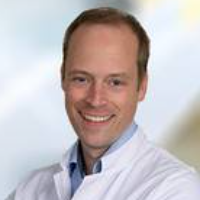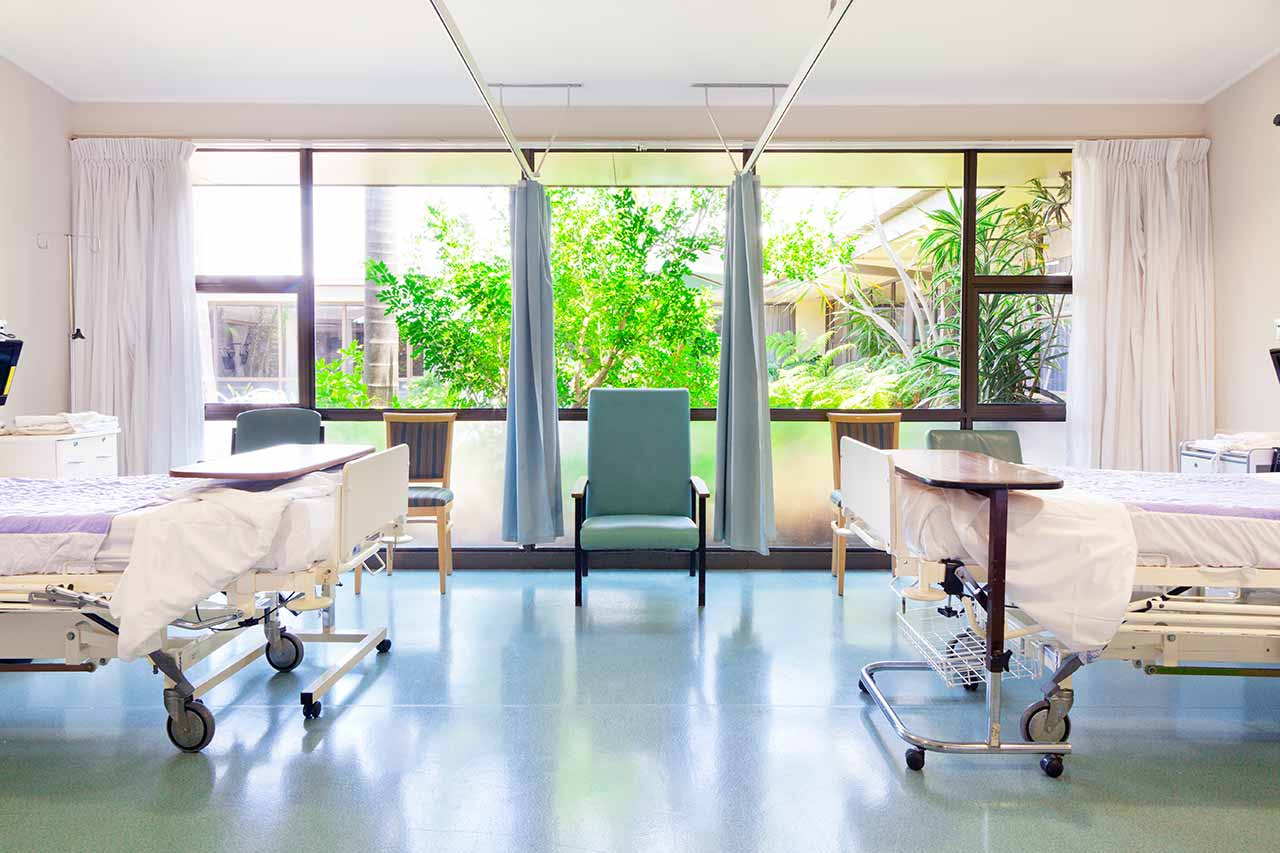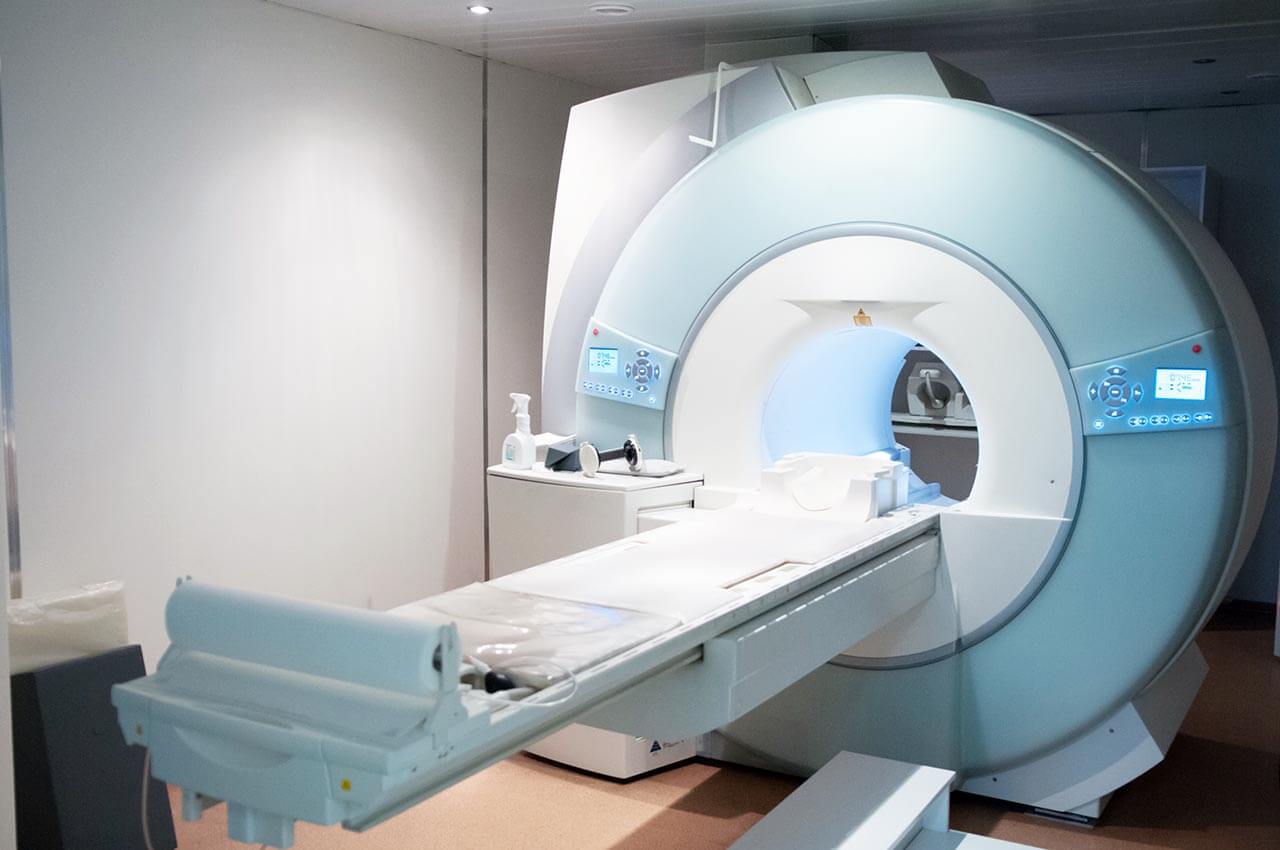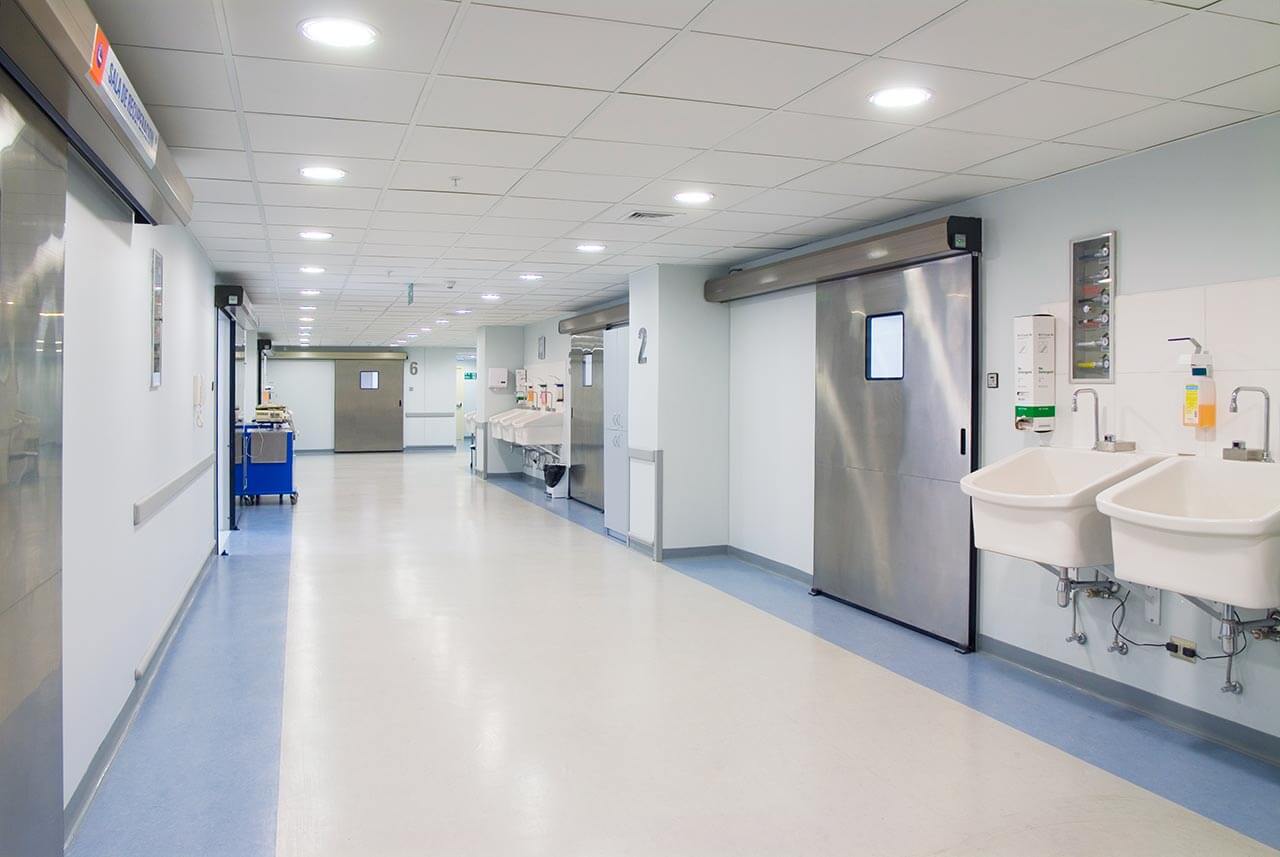
The program includes:
- Initial presentation in the clinic
- clinical history taking
- physical examination
- review of medical records
- laboratory tests:
- complete blood count
- general urine analysis
- biochemical analysis of blood
- indicators of inflammation (CRP, ESR)
- indicators blood coagulation
- x-ray examination of the hip
- MRI scan of the hip
- preoperative care
- hip arthroscopic surgery
- symptomatic treatment
- control examinations
- physiotherapeutic procedures
- orthopedic appliances
- the cost of essential medicines and materials
- nursing services
- full hospital accommodation
- explanation of future recommendations
Required documents
- X-ray examination of the hip joints
- MRI scan of the hip joints, if available
Service
You may also book:
 BookingHealth Price from:
BookingHealth Price from:
About the department
The Department of Adult and Pediatric Orthopedics, Orthopedic Surgery, Foot Surgery at the University Hospital Saarland Homburg offers the full range of services in the areas of its specialization. The department carries out comprehensive diagnostic examinations of the musculoskeletal system as well as effective conservative and surgical treatment of pathologies of the joints, tendons, muscles, and bones. The department's team of doctors is always trying to solve the problem with the musculoskeletal system using conservative methods such as drug therapy, intra-articular injections, therapeutic exercises, physiotherapy, and massage. The department also has a pool for swimming and therapeutic exercises in the water, a well-equipped gym, and electrotherapy rooms. In complex clinical cases, doctors resort to surgical interventions, but almost all of them are performed with low-traumatic techniques, which allow a patient to restore mobility as soon as possible. One of the most important focuses of work in the surgical field is knee, hip, and shoulder replacement surgery. The department has passed the endoCert certification that is awarded to the best orthopedic medical facilities only. The specialists also have a perfect command of arthroscopic techniques for treating joints. The department is headed by Prof. Dr. med. Stefan Landgraeber.
One of the most common diseases in the clinical practice of the department's doctors is hip arthrosis (coxarthrosis). This degenerative-dystrophic disease causes the destruction of cartilage covering the surface of the femoral head and acetabulum. As the disease progresses, it causes acute pain, movement stiffness, up to immobility, and lameness. If a patient timely seeks medical attention, the department's doctors manage to eliminate the pathology, thereby improving the patient's health condition and mobility with the help of intra-articular injections, therapeutic exercises, and physiotherapy. If conservative treatment does not give the desired result, the only effective method to treat coxarthrosis is hip replacement surgery. Depending on the patient's clinical data, this surgery can be performed by the methods of total cementless joint replacement (used in most patients), total cementless replacement with femoral neck preservation, and cemented total hip replacement surgery. The department's surgeons most often perform hip replacement surgery using sparing endoscopic techniques. The specialists are also competent in revision hip replacement surgery (prosthesis replacement after its initial implantation) due to loosening of prosthesis elements, infection, etc.
The department's medical team also demonstrates high treatment success rates in arthroscopic joint surgery. The medical facility performs arthroscopic procedures for shoulder diseases (rotator cuff tears, dislocated shoulders, shoulder cartilaginous tissue lesions, shoulder stiffness, or frozen shoulder), knee diseases (meniscus and ligament tears, patellar dislocation, and cartilage tissue lesions), and hip diseases (traumatic cartilage injuries, impaired tendon and ligament integrity, and impaired articular surface integrity). Knee arthroscopic interventions are the most common in the department. When performing arthroscopy, a surgeon makes only two small skin incisions in the area of the affected joint 5-6 mm in size, through one of which a special instrument (arthroscope) is inserted in the form of a tube with a tiny video camera attached. The duration of the surgical procedure is about 30 minutes. Patients tolerate arthroscopy well, quickly regain mobility after the operation, and practically do not experience any pain. In addition, such interventions guarantee an excellent aesthetic result due to the absence of scars.
The department's doctors also treat foot and ankle diseases. The specialists understand that discomfort and pain in the foot area have a negative impact on the person's quality of life, limiting their mobility, so physicians have ample opportunities to eliminate even particularly complex foot pathologies. The department's doctors successfully perform arthroscopic interventions to treat hallux valgus, hallux rigidus, metatarsalgia, flat feet, hollow foot, Charcot arthropathy, Achilles tendon rupture, and other pathologies, including in children.
The department's team of pediatric orthopedists takes care of the health of the musculoskeletal system in children and adolescents. Young patients with hip diseases (hip dysplasia, Perthes disease, and slipped capital femoral epiphysis), axial lower limb deformities (O-shaped and X-shaped deformities), spinal pathologies (scoliosis), congenital bone malformations, bone and soft tissue tumors, and foot malformations (clubfoot, heel spurs, and flat feet). At the diagnostic stage, children undergo the necessary imaging tests, including X-rays, ultrasounds, and MRI scans. The department's specialists first consider conservative treatment options. With appropriate clinical indications, the most sparing but, at the same time, effective operations are performed. Spastic syndromes are treated with symptomatic therapy using botulinum toxin injections under ultrasound guidance (short-term anesthesia may be used whenever required).
The department's key clinical focuses include:
- Adult orthopedics and orthopedic surgery
- Primary joint replacement surgery with an artificial prosthesis and revision joint replacement surgery
- Hip replacement surgery
- Knee replacement surgery
- Shoulder replacement surgery
- Elbow replacement surgery
- Arthroscopic surgery
- Knee arthroscopy
- Surgery for meniscal injuries
- Surgery for knee cartilage lesions
- Surgery for cruciate ligament injuries
- Surgery for patellar instability
- Hip arthroscopy
- Surgery for articular cartilage traumatic injuries
- Surgery for ruptured hip joint components
- Surgery for impaired hip tendon and ligament integrity
- Surgery for impaired articular surface integrity
- Shoulder arthroscopy
- Surgery for rotator cuff tears
- Surgery for SLAP tears
- Surgery for acute and chronic rotator cuff injuries
- Surgery for acute and chronic shoulder instability
- Surgery for acute and chronic acromioclavicular joint injuries
- Surgery for cartilage lesions
- Surgery for shoulder stiffness
- Surgery for frozen shoulder
- Surgery for forearm calcification
- Knee arthroscopy
- Orthopedic oncology
- Surgical resection of tumors in the upper and lower limbs, pelvis, and spine with a focus on the use of organ preservation surgery and stabilizing spinal operations
- Minimally invasive surgery for osteoid osteoma resection
- Spinal surgery
- Minimally invasive, microsurgical, and endoscopic operations for spinal disc herniation
- Intervertebral disc prosthetic repair in the cervical and lumbar spine
- Dorsoventral stabilization surgery
- Endoscopy-guided spinal fusion (ventral approach)
- Decompression surgery for spinal stenosis
- Spinal curvature (scoliosis) surgical repair in patients of all age groups, including in children
- Multimodal pain management programs for chronic back pain
- Primary joint replacement surgery with an artificial prosthesis and revision joint replacement surgery
- Pediatric orthopedics and orthopedic surgery
- Treatment of hip diseases
- Treatment of hip dysplasia
- Treatment of Perthes disease
- Treatment of slipped capital femoral epiphysis
- Treatment of foot and ankle diseases
- Treatment of clubfoot
- Treatment of flat feet
- Treatment of hollow foot
- Treatment of axial lower limb deformities: O-shaped and X-shaped deformities of the lower limbs
- Treatment of leg length discrepancy
- Treatment of scoliosis
- Treatment of congenital bone malformations
- Treatment of benign and malignant musculoskeletal tumors
- Treatment of muscular dystrophies
- Treatment of cerebral palsy (in collaboration with pediatric neurologists): conservative therapy, including botulinum toxin injections, and surgical osteosynthesis
- Treatment of hip diseases
- Foot surgery
- Treatment of forefoot diseases
- Hallux valgus repair
- Hallux rigidus repair
- Small toe deformity repair
- Metatarsalgia treatment
- Treatment of mid- and hindfoot diseases
- Treatment of Lisfranc injuries
- Treatment of flat feet
- Treatment of hollow foot
- Treatment of Charcot arthropathy
- Treatment of ankle diseases
- Treatment of cartilage lesions
- Treatment of ankle impingement syndrome
- Treatment of ankle arthrosis
- Treatment of foot tendon and ligament injuries
- Treatment of Achilles tendon degeneration
- Treatment of peroneal tendon tears
- Treatment of ligament instability
- Treatment of compression syndromes
- Treatment of tarsal tunnel syndrome
- Treatment of Morton's neuroma
- Treatment of forefoot diseases
- Other treatment methods
Curriculum vitae
Higher Education and Postgraduate Training
- 1997 - 2003 Human Medicine studies, Heinrich Heine University Duesseldorf.
- 2004 Doctoral thesis defense (Doctoral Degree), Institute of Anatomy, Heinrich Heine University Duesseldorf.
- 2010 Habilitation in Orthopedics and Traumatology, University Hospital Essen.
Professional Career
- 2003 - 2009 Research Fellow, training for board certification in Orthopedics and Traumatology, Department of Orthopedics, University Hospital Essen, with rotation to the Department of Traumatology at the University Hospital Essen (from 2005 to 2007).
- 2009 Board certification in Orthopedics and Traumatology (Acting Head of the Department).
- 2010 Senior Physician in the Department of Orthopedics.
- 2013 Scientific and Clinical Internship, Rush University Medical Center, Chicago, Department of Orthopedic Surgery.
- 2015 Managing Senior Physician, Department of Orthopedics and Traumatology, University Hospital Essen.
Qualifications
- Board certification in Orthopedics and Traumatology.
- Special Orthopedic Surgery.
- Skeletal X-ray diagnostics.
- Theoretical basis of the specialty in Emergency Care.
Clinical Focuses
- Joint-sparing hip surgery.
- Knee and hip endoprosthetics, including revision interventions and endoprosthetics in oncopathologies.
- Bone and cartilage tissue regeneration.
- Osteonecrosis.
Research Focuses
- Biological materials.
- Bone and cartilage tissue regeneration (regenerative orthopedics).
- Joint replacement surgery.
Prizes and Scholarships
- 2015 Poster Award of the German Congress of Orthopedics and Traumatology.
- 2014 EFORT Autumn Traveling Fellowship, Italy.
- 2013 Prize of the German Society for Orthopedics and Orthopedic Surgery in Evidence Based Medicine.
- 2009 Travel Grant, Working Group on Endoprosthetics, Congress "Modern hip replacement concepts" in Orlando.
Photo of the doctor: (c) Universitätsklinikum des Saarlandes
About hospital
The University Hospital Saarland Homburg is the largest hospital in the city of Homburg and the most important medical facility in the region. The hospital, which currently has 30 specialized departments and 20 institutes, was founded in 1947 and operates on the basis of Saarland University. The hospital plays a leading role in medical education, research, and medical care both in the state of Saarland and throughout Germany. With vast experience in serving foreign patients, the medical facility is also widely known in the international medical arena.
The pride of the hospital is state-of-the-art equipment that allows the doctors to perform high-precision comprehensive diagnostics and the most sparing treatment even if a patient has a severe pathology. Patients are offered innovative medicine based on the very latest scientific achievements. At the same time, the hospital offers many therapeutic methods that are used only in leading medical centers in Europe, including da Vinci robot-assisted surgery, CAR T-cell therapy, TAVI and MitraClip catheter-based procedures, innovative laser procedures, etc. Great importance is paid to ethical and social competence. The hospital is constantly improving the work of its medical personnel and infrastructure to provide medical services that meet the highest standards.
As a multidisciplinary medical complex, the hospital offers highly effective treatment of the full range of common diseases as well as rare and severe pathologies. The efforts of the medical staff, which includes over 600 doctors and 2,000 nurses, are focused on the patient and their unique needs and desires. The doctors always devote enough time to personal communication with their patients, provide them with moral support, and are sympathetic to every life situation.
Photo: (с) depositphotos
Accommodation in hospital
Patients rooms
The patients of the University Hospital Saarland Homburg live in comfortable single, double, and triple patient rooms with a modern design. Each room is equipped with an ensuite bathroom with a shower and a toilet, as well as everything else necessary: a comfortable bed, a bedside table, a TV, and a telephone. In addition, enhanced-comfort rooms and specially equipped rooms for people with disabilities are available for the patients.
Meals and Menus
The hospital offers healthy and delicious meals three times a day: buffet breakfast, dinner with a wide choice of dishes for every taste, and a light supper. The menu features dietary and vegetarian dishes. There is also a cafeteria on the territory where one can taste delicious dishes and have a cup of coffee, tea, or some refreshing drinks
Further details
The standard patient rooms include:
Religion
The hospital regularly hosts catholic and evangelical devine services. The services of representatives of other religions are available upon request.
Accompanying person
During an inpatient program, an accompanying person can stay with you in the patient room or in a hotel of your choice.
Hotel
During an outpatient program, you can stay in a hotel of your choice. The managers will help you choose the most suitable options.





